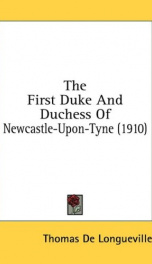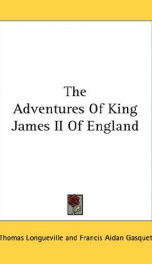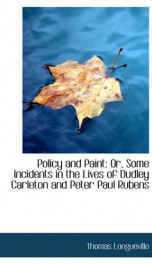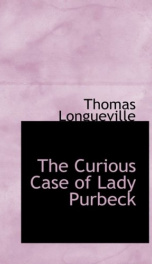falklands

Purchase of this book includes free trial access to www.million-books.com where you can read more than a million books for free. This is an OCR edition with typos. Excerpt from book: CHAPTER II. POVERTY, PROMOTION AND "POPERY." To please her husband, Elizabeth, Lady Cary, took a step which entailed very serious consequences upon herself. During a severe attack of his chronic impecuniosity, with a view to giving him temporary relief, she mortgaged the greater part of the land which had been given to her as a jointure. At this her father was very irate, so much so that " he disinherited her upon it, putting before her her two eldest (and then only) sons, tying his estate on the eldest, and in case he failed, on the second." As things turned out, this alteration in her father's will did her much more personal mischief than might have been anticipated ; and it placed her entirely at her husband's and her son's mercy. In the year 1620 Sir Henry Cary was raised to the peerage, with the Scottish title of Viscount Falkland. He was then living at Cary House, in London. Just at this time he was engaged in hot dispute over a right which he claimed to a share in all wrecks at Margate, Broadstairs and Ramsgate.f He wrote to Lord Zouch, Warden of the Cinque Ports, I protesting that it was his wish, as " servant to the glorious Peace-maker of Christendom," to recover his rights in a peaceable fashion. He based his claims to the wreckage on his lordship of the manor of Minster inKent, a property which he had purchased in 1611. He asserted that the terms of his purchase included royalties and wrecks at sea. The Lady Falkland, p. 16. t S. P. Dom. yantes I., vol. cxxviii., No. 43. ( Ib., vol. cxv., No. 22. If much of his time was occupied by his official duties, his various forms of reckless extravagance and his endeavours to raise money, Lord Falkland found leisure for literary pursuits, though to what extent is doubtful, as we learn from Wood.f but this ...
Info about the book
Author:
Series:
Unknown
ISBN:
0520079698
Rating:
4/5 (5)Your rating:
0/5
Languge:
English
Users who have this book
Users who want this book
What readers are saying
What do you think? Write your own comment on this book!
write a commentGenre
if you like falklands try:
Do you want to read a book that interests you? It’s EASY!
Create an account and send a request for reading to other users on the Webpage of the book!








